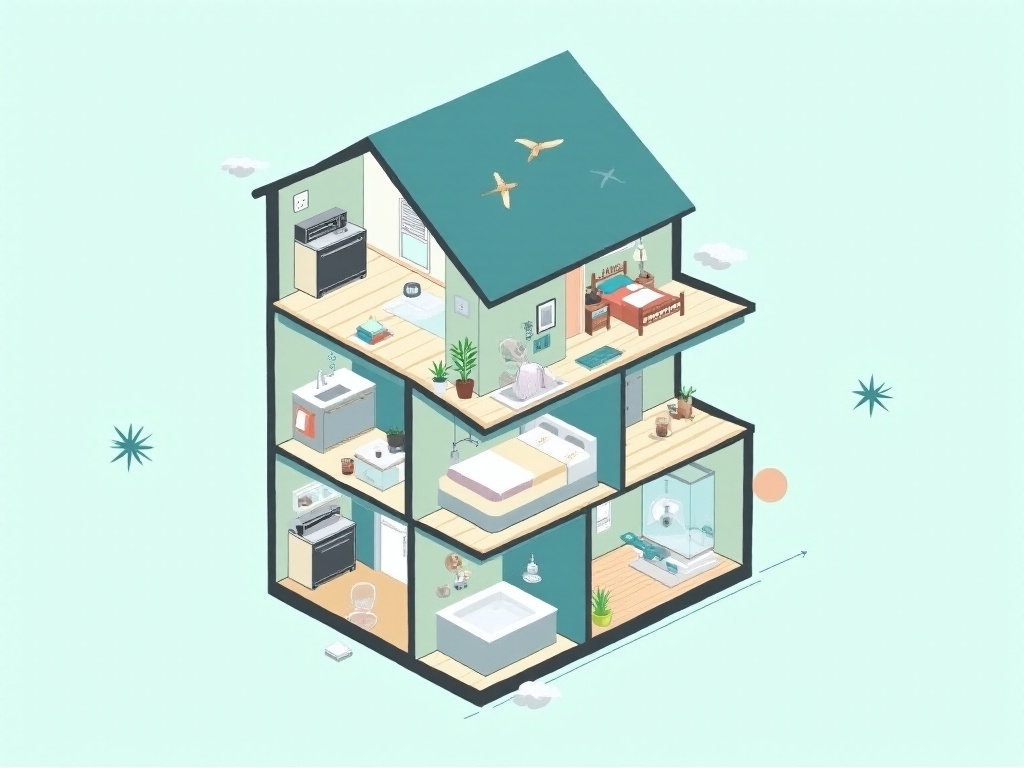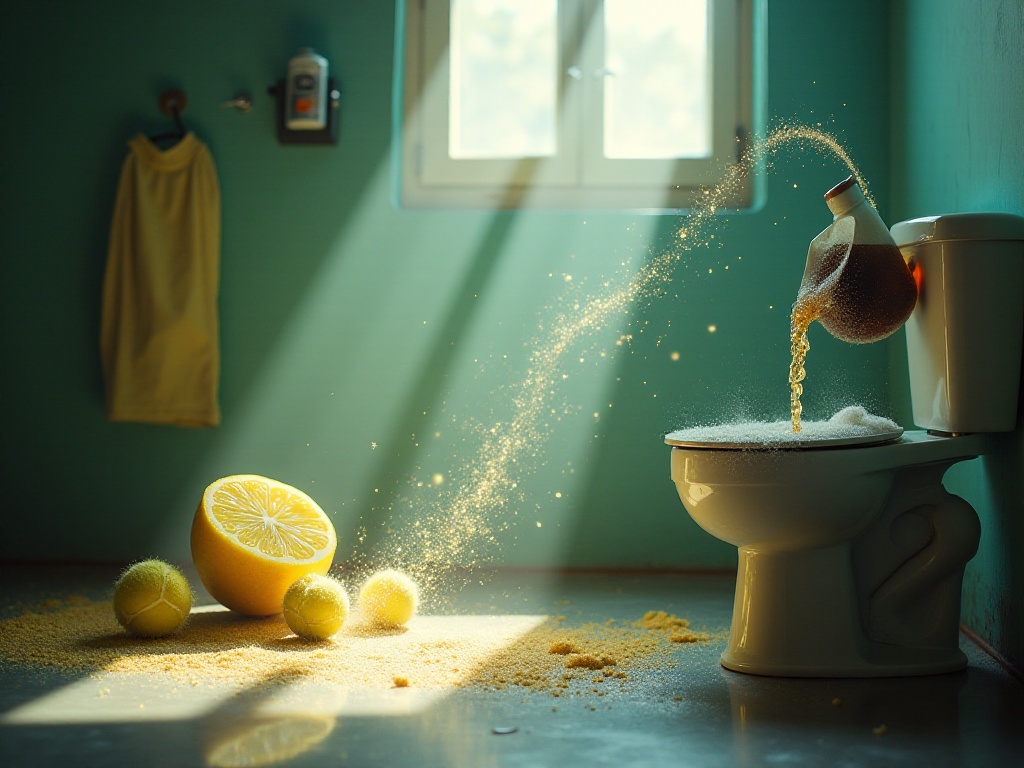Introduction
Do you feel frustrated and helpless when you wake up every morning to see things scattered everywhere in your room, clothes carelessly thrown on chairs, the desk piled with clutter, and the nightstand covered with bottles and containers? As someone who once found even making the bed troublesome, I completely understand this feeling. But after years of exploration and practice, I finally found a home organization system that works for me, transforming me from an extremely messy person into a home organization expert in my friends' eyes.
Honestly, this transformation has benefited me immensely. Not only do I feel much happier when returning home each day, but my work efficiency has also improved significantly. Most importantly, I discovered that housekeeping can be so effortless! Today, I'll share this home cleaning system that I've practiced for years, guaranteed to improve your quality of life dramatically!
A Fresh Start
I know many people struggle with waking up. I used to be like that, hitting the snooze button dozens of times and rushing to work bleary-eyed every day. Then one day, I came across an interesting suggestion online: put your alarm clock in the farthest corner of your room. At first, I thought this trick was too simple to be effective, but after trying it, I discovered it was magical!
Since the alarm clock was on the other side of the room, I had to crawl out of my warm bed to turn it off. By the time I stumbled to the alarm, I found myself completely awake. Most amazingly, knowing I would have to get up and walk, my subconscious started adjusting automatically, gradually waking up before the alarm went off.
When I first started trying this method, I kept track of the data. Previously, I would hit snooze 5-6 times on average, with 10-minute intervals between each, wasting nearly an hour just lying in bed. Now? I can get up as soon as the alarm rings, and because I'm not repeatedly awakened by the alarm, my sleep quality has actually improved.
The most surprising thing was that this simple change brought unexpected chain reactions. Because my wake-up time became consistent, my biological clock started adjusting gradually, and I would get sleepy on time at night. Now I can guarantee 7-8 hours of quality sleep every day, and my overall energy is completely different.
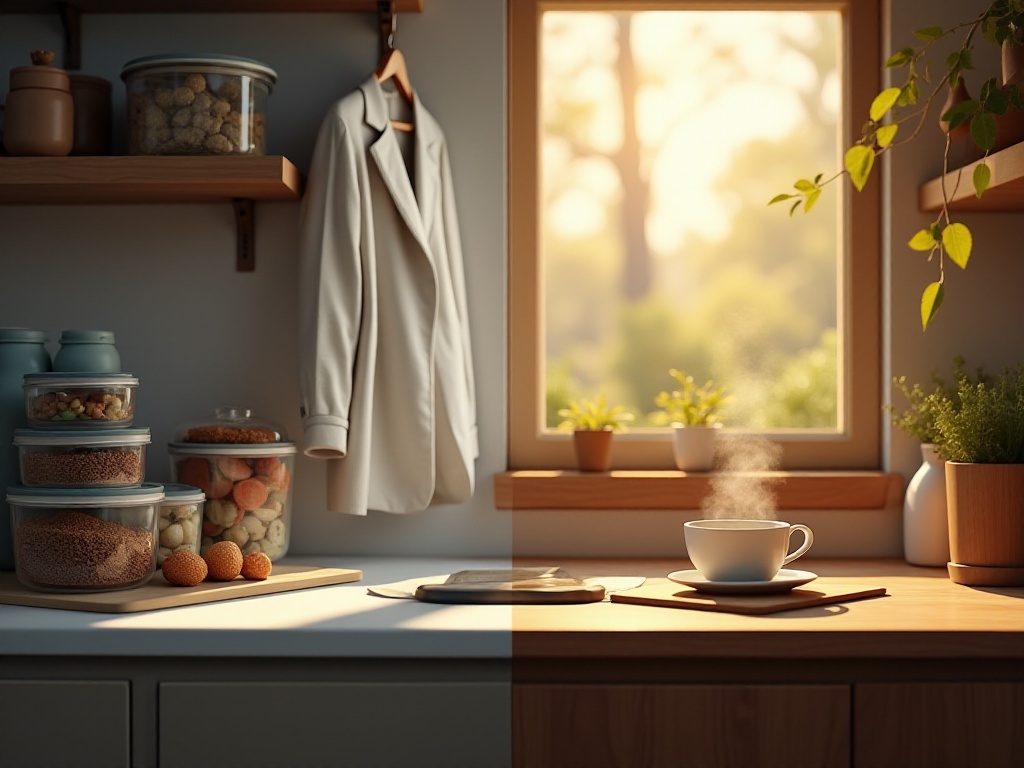
Evening Preparation
Speaking of mornings, I must mention an important secret: advance preparation. You might think I'm stating the obvious, but very few people actually stick to it. Now I religiously spend 15 minutes every night doing "tomorrow's preparation," and these 15 minutes are arguably the most worthwhile investment of my day.
Specifically, I lay out all the clothes I'll wear the next day on hangers, including small items like underwear and socks. I also check my work bag, making sure everything needed like documents, laptop, and charger is packed. If I'm bringing lunch the next day, I even prepare the lunch box and thermos.
Most thoughtfully, I set out all the utensils needed for breakfast. For instance, if I'm making a sandwich, I'll place the toaster, frying pan, spatula, and even condiments on the counter. This way, I don't have to think at all the next morning and can operate mechanically.
This habit has brought significant changes. Previously, my mornings were always hectic, spending half an hour just choosing clothes, plus packing my bag and preparing breakfast, taking at least 40 minutes. Now? I can get everything done in 20 minutes without feeling rushed.
The saved time has made my mornings exceptionally leisurely. I can slowly enjoy my homemade breakfast, read the news, and even flip through the book I'm currently reading. Most importantly, this composed state continues to influence my mood throughout the day, making me more efficient at work.
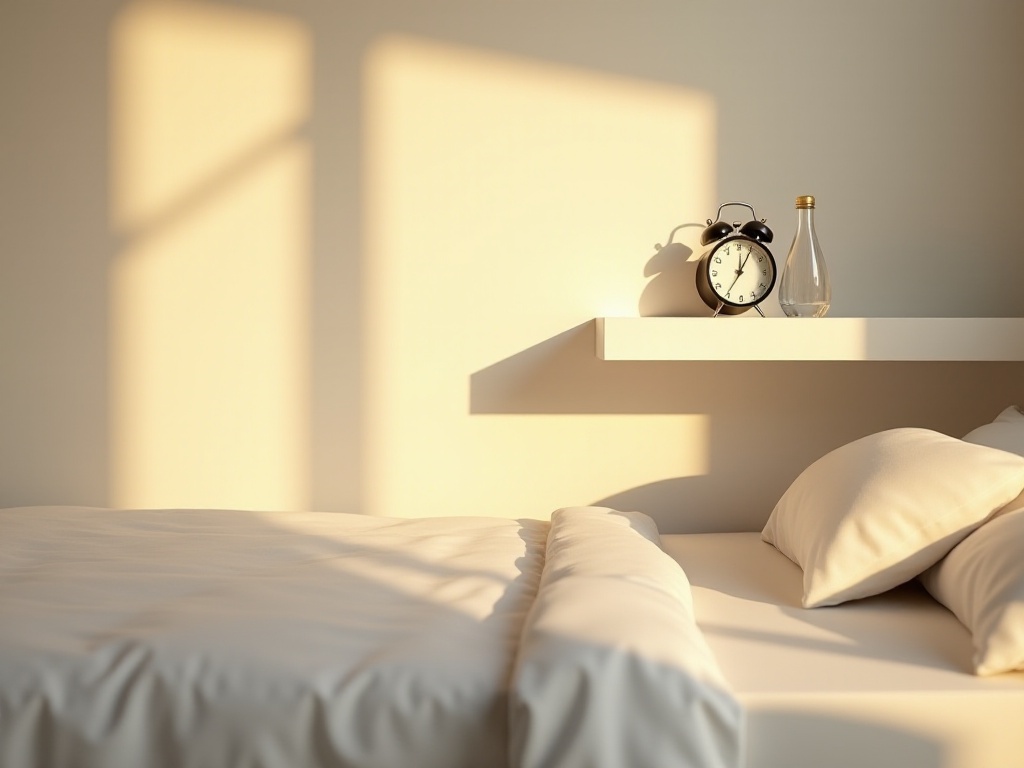
Space Management
When it comes to home organization, the core principle is: assign a fixed home for everything. This sounds extremely simple, but actually achieving it requires great determination and perseverance.
When I first started organizing, I spent an entire weekend just categorizing items in my home. I took everything out, sorted it by category, and decided what to keep based on frequency of use and practicality. Honestly, this process was quite painful because I discovered I had hoarded so many things I never used.
After deciding what to keep, I spent about a month repeatedly adjusting the storage location of each item. This process wasn't particularly difficult, but the key was to align with usage habits and movement patterns. For example, I installed a simple key hook by the entrance. The location was carefully chosen, neither obstructive nor out of the way, but right along the path I take when entering.
The key example particularly illustrates the point. Previously, I would put my keys down anywhere, resulting in a dramatic key hunt before leaving home. Sometimes I couldn't find them even after searching the entire house, getting all sweaty from anxiety. I calculated that I wasted at least half an hour every week looking for keys. Now with a fixed spot, this problem is completely solved. As long as I maintain the habit of hanging up my keys when I get home, I never encounter the embarrassment of not finding them.
Besides keys, I've planned dedicated spots for many commonly used items. For instance, I set up fixed charging stations in the living room, study, and bedroom, so there aren't cables scattered everywhere. Also, I designated a corner in the storage room for courier boxes that might be reused.
Most interestingly, this positioned storage method can help you discover small issues in your life. For example, I found I often forgot skincare products in the bathroom, so I prepared another set near my dressing table. This way, even if I occasionally forget to bring them out of the bathroom, it doesn't affect my routine.
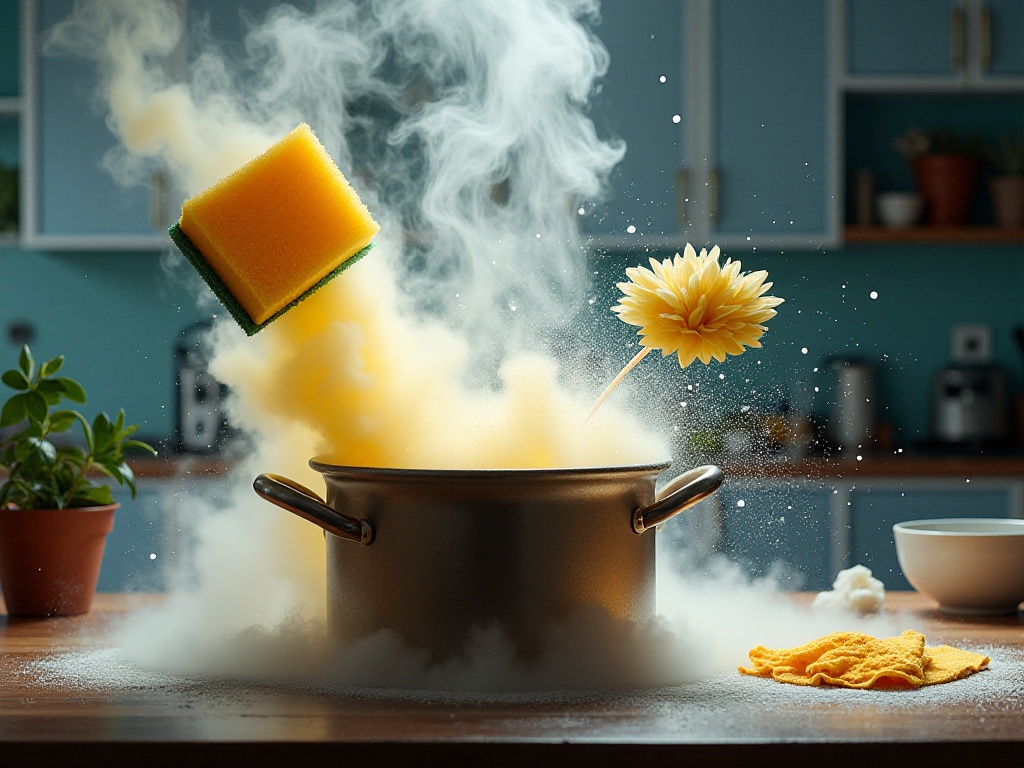
Cleaning Revolution
When it comes to cleaning, the most important concept is: don't wait until things get dirty to clean them. I now follow the principle of "clean as you go," especially in the kitchen, which is the area most prone to accumulating mess.
Many people have this habit: focusing solely on cooking while cooking, then cleaning everything up at once after all dishes are done. This seems more efficient on the surface, but actually makes cleaning much more difficult. Oil stains become harder to clean once they dry, and food residue becomes particularly stubborn.
My current approach is to distribute cleaning tasks throughout the cooking process. For instance, while waiting for soup to boil, I'll clean the cutting board and knives; during intervals waiting for ingredients to cook, I'll wipe clean the used seasonings and put them back; during breaks between stir-frying dishes, I'll quickly wipe down the stove.
This method might seem time-consuming, but it actually greatly reduces the final cleanup time. Previously, I had to face a messy kitchen after cooking, spending nearly an hour just cleaning up. Now? I can get everything done in at most 15 minutes, and the cleaning results are actually better.
This principle applies not just to the kitchen, but to every corner of the home. For example, in the bathroom, I use a squeegee to remove water from the mirror and glass door after each shower to prevent water stains. For my desk, I put away stationery and throw away trash immediately after finishing work, so I have a fresh environment when starting work the next day.
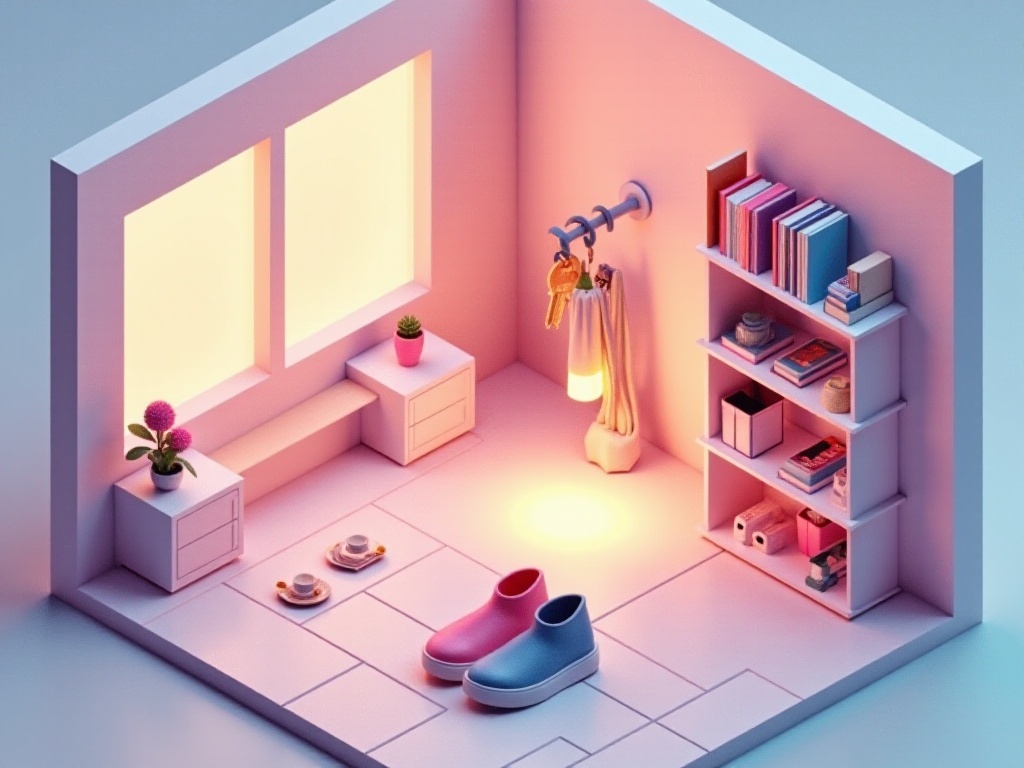
Ongoing Maintenance
After discussing so many specific methods, the final emphasis is: maintaining cleanliness isn't a one-time thing, but a habit that needs continuous persistence. Many people experience this: the house looks brand new after a deep clean, but returns to its original state shortly after. This happens because they haven't established habits for ongoing maintenance.
My suggestion is to start with the most basic things. For instance, spend 5 minutes before bed tidying the living room, arranging cushions neatly, putting items back in their places on the coffee table, returning the remote control to its fixed spot. These small actions might seem trivial, but their cumulative effect is amazing.
Every weekend, I schedule 2 hours for deep cleaning, including wiping furniture, washing floors, organizing the wardrobe, etc. This might seem like a long time, but because I maintain things well daily, it doesn't feel particularly tiring. I treat this time as a form of relaxation, cleaning while listening to music or podcasts, making it enjoyable.
Most importantly, adjust your mindset and don't pursue perfection. I've seen many people give up because they pursue perfection, thinking if they can't do it perfectly, they might as well not do it at all. Actually, the most important thing about maintaining home cleanliness isn't achieving perfection in one go, but being able to persist consistently.
Taking myself as an example, transforming from an extremely lazy person to who I am now took nearly a year. During this time, I experienced many moments of wanting to give up, but each time I saw my home becoming increasingly tidy and my mood improving, I found motivation to continue.

Conclusion
Through years of practice, I've deeply experienced the important impact a clean living environment has on quality of life. It not only improves our mood and work efficiency but also brings us a deep sense of happiness.
Actually, everyone can find their own suitable organization method; the key is to start taking action. It might feel particularly difficult at first, but as long as you persist, you'll definitely see changes. If you have any unique cleaning tips, feel free to share them in the comments - you might inspire others!
Let's work together to create a living space that makes us feel comfortable and happy! I believe that through small changes from each person, we can all have an ideal home worth aspiring to.


